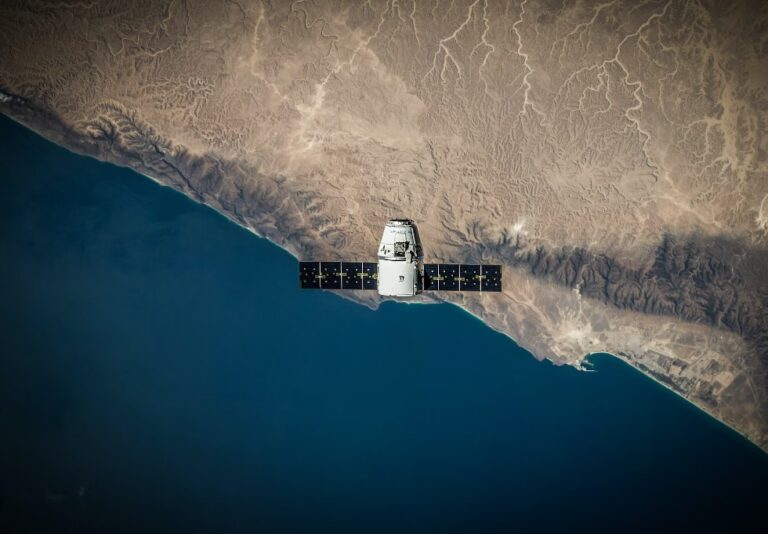Many of the countries with the fewest internet users confront a myriad of challenges when attempting to expand internet access. The deployment of the infrastructure necessary to expand internet access can be expensive, and many developing countries have sizable rural populations where even the existing infrastructure is often inadequate.
Access to the internet is crucial for modern day communication, education, economic growth, and social advancement in our increasingly interconnected society. However, some of the world’s poorest countries have additional challenges due to a lack of access to the internet, which allows people to take advantage of opportunities that would not be available to them otherwise.
The internet access gap, sometimes known as the digital divide, is still a major problem around the world.
Table of Contents
The 5 countries with the lowest number of internet users
These are the five countries with the lowest internet users rates:
1. Maldives
The Maldives are a group of islands in the Indian Ocean that are known for their beautiful beaches and pure, turquoise waters. Constraints in the form of demography, geography, and economic pattern meant that it remained the country with the least internet penetration, with an internet users base of 931,000 people.
Dhiraagu and Ooredoo are the dominant players in the Maldives’ internet market. Due to their dispersed location, the islands make it difficult and expensive to run cables beneath the ocean or set up cell phone towers in more rural areas.
In addition, many islands lack the power and transportation requirements for functional internet access. Due to a lack of rival ISPs, many Maldivians must pay exorbitant rates to access the web.
2. Nicaragua
Nicaragua, a country in Central America, has an internet users base of 1,896,000, making it the second-lowest internet penetration rate among countries. Several reasons, particularly socioeconomic ones that limit access to technology, contribute to this low rate.
Many people in Nicaragua’s capital city of Managua live in poverty, making it one of the poorest countries in the Americas. This reduces the availability of low-cost internet access and gadgets that can connect to the internet. Not only do they lack broadband infrastructure and consistent electricity, but they also lack the ability to connect to the internet.
Since internet connectivity is typically greater in cities than in rural regions, this is a problem that is made worse by the urban-rural digital divide. Lower levels of digital literacy impede people from making the most of the internet, especially in rural places where access to excellent education is limited.
3. Bahrain
Bahrain, a small island nation in the Persian Gulf, has a prosperous economy and a high level of living. However, its subscriber base of 1,897,000 subscribers placed it third among countries with the fewest internet users.
The history of internet restriction in Bahrain has led to a general mistrust of the internet. Some people have been dissuaded from joining the digital era because of the strict controls placed on internet use.
In addition, the unavailability of cheap plans and the high price of internet access have stymied popular use. Because of this lack of locally relevant content and services, some Bahraini citizens view the internet as less useful than it actually is.
Read also: The 5 countries with the most internet users
4. Eritrea
Eritrea is a country in the Horn of Africa, which lies in the far northeast of Africa. Only 0.91% of the population has access to the internet, making it one of the countries with the lowest internet penetration rates in the world.
The government strictly regulates and controls all Internet use. The government restricts access to international internet resources and controls all online activity. Compared to North Koreans, they are less likely to own a cell phone or a landline.
Citizens have a hard time gaining access to online resources due to the lack of a developed Internet infrastructure.
5. Burundi
One of the countries with a low internet penetration rate is Burundi, in East Africa, with a rate of only 1.49 percent. The lack of adequate telecommunications infrastructure is a major contributor to the widespread internet access problem.
Fibre optic cables and broadband networks are two examples of the country’s inadequate infrastructure. This lack of infrastructure makes it hard to deliver internet access to rural areas.
Many people in Burundi, especially those with lower incomes, find it difficult to afford Internet service. Smartphones and their associated data plans are prohibitively expensive. In a country where a sizable section of the population lives below the poverty line, high subscription costs discourage people from signing up for internet service.
Internet: a necessity in the digital world
Having access to the internet is now considered a basic human need rather than a luxury. The Maldives, Nicaragua, Bahrain, Eritrea, and Burundi confront considerable difficulties in meeting the demand for internet access among their citizens.
Infrastructure improvements, digital literacy programs, and addressing socio-economic barriers are all necessary to close the digital divide in these countries.
Closing this gap is not only an economic need in the modern world, but also a means of providing people and communities with more information and better access to resources.
Read also: What is Starlink? All you need to know about Elon Musk’s satellite company












